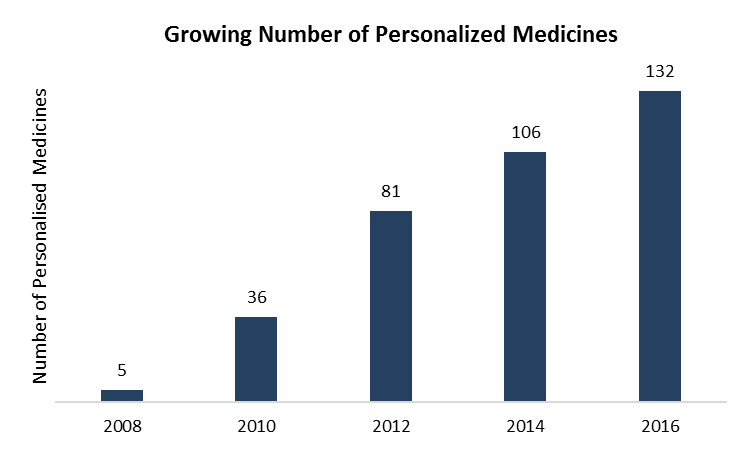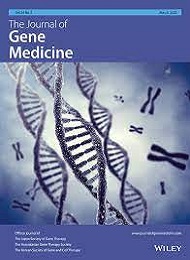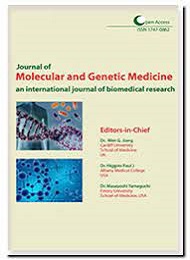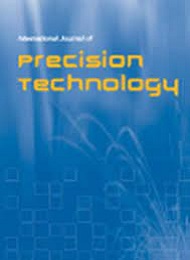We would be delighted to have your gracious presence at the 2nd World Congress on Precision and Personalized Medicine during December 05-06, 2023 Zurich, Switzerland.
WHAT IT IS?
Preventive Medicine
Preventive healthcare consists of measures taken for disease prevention, as opposed to disease treatment. A medicine or other treatment designed to prevent disease or ill healths. which are affected by environmental factors, genetic predisposition, disease agents, and lifestyle choices.
Predictive Medicine
The branch of medical science or practice concerned with the prediction of the occurrence or course of disease in individual patients, now especially using genetic information.
Molecular diagnostics
Molecular diagnostics method used to analyze biological markers in the genome and proteome and by applying molecular biology to medical testing. This technique is used to diagnose and monitor disease, detect risk, and decide which therapies will work best for individual patients.
Personalized medicine
Personalized medicine is a medical practice that separates patients into different groups with medical decisions, practices, interventions and products being tailored to the individual patient based on their predicted response and risk of disease.
Conference Series Ltd is devotedly involved in conducting 300+ Conference Series Ltd Every Year across Europe, USA (Baltimore, Chicago, Las Vegas, Philadelphia, and San Antonio) and almost all other parts of the world with support from 1000 more scientific societies and Publishes 400+ Open access journals which contains over 30000 eminent personalities, reputed scientists as editorial board members.
Personalized medicine therapeutics and companion diagnostic market have huge opportunities for growth in healthcare and will improve therapeutic effectiveness and reduce the severity of adverse effects approach to drug therapies. Personalized cancer medicine is self-made samples of translating cancer genetics into medical. There is a huge contribution of Genomic medicine by revealing genomic variations; have an effect on health, sickness and drug response. Biomarker also play vital role in the biological characteristic which can be molecular, anatomic, physiologic and chemical change drug development research which turns biomarkers into companion diagnostics.
Track 1: Molecular Diagnostics in Personalized Medicine
In personalized medicine molecular diagnostics is used for analysing of biological markers and also analysing by applying molecular biology to medical testing .This technique is used to diagnose and monitor disease,detect risk in individual patients .DNA sequencing is the process of determining the precise order of nucleotides within a DNA molecule .SNP genotyping is the measurement of genetic variations of single nucleotide polymorphism (SNPs). Which is the measurement of more general genetic variation.Gene expression profiling is used for the measurement of the activity of thousands of genes at once.
Track2: Biomarkers Personalized Medicine
In personalized medicine biomarkers and biological marker generally refers to a measurable indicator of some biological state or condition. This word efer to a substance the presence of which indicates the existence of a living organism. Biochemical biomarkers are often used in clinical trials, Biomarkers used for personalized medicine are typically categorized as either prognostic or predictive .In, biomarkers is a molecule that allows the detection and isolation of a particular cell type. A biomarker indicates a change in state of a protein that correlates with the risk or progression of a disease. Biomarkers are useful in a number of ways, including measuring the progress of disease. Biomarkers also used in early diagnosis, disease prevention, drug target identification, drug response etc.
Track3: Pharmacogenetic in Personalized Medicine
In personalized medicine pharmacogenetics is the study of inherited genetic differences in drug metabolic pathways which can affect the drug responses, like therapeutic effect as well as adverse effect. Inter- and intra-individual variation in gene expression and its function.In oncology, pharmacogenetics refers to germline mutations and pharmacogenomics is study the somatic mutations in tumoral DNA leading to alteration in drug response
Track4: Pharmacogenomics in Personalized Medicine
Pharmacogenomics is the study of the role of genetics in drug response. It deals with the influence of acquired and inherited genetic variation on drug response, drug absorption distribution, metabolism, and elimination, as well as drug receptor target effects. Pharmacogenomics is often used interchangeably with pharmacogenetics. Pharmacogenomics is used for the detection of the individual genetic variation with drug responses pharmacogenetics focuses on single drug-gene interactions, incorporating genomics and epigenetics while dealing with the effects of multiple genes on drug response
Track5: Pharmacoproteomics in Personalized Medicine
The proteome is the entire set of proteins it is expressed by genome, cell, tissue, or organism at a certain time. More specifically, it is a combined of proteins and genomes. Proteomics is the study of the proteome. A cellular proteome is the collection of proteins present in a particular cell type and it exposure to harmone stimulation. It can also be useful to consider an organism’s complete proteome, which can be conceptualized as the complete set of proteins from all of the various cellular proteomes. Proteome used to refer to the collection of proteins in certain sub-cellular biological systems.
Track6: Metabolomics in Personalized Medicine
Metabolomics is defined as the chemical processes involving of metabolites. Metabolomics is the study of the unique chemical fingerprints. The metabolome refers to the collection of all metabolites in a biological cell, tissue, organ or organism. mRNA gene expression data and proteomic analyses reveals the set of gene products in the cell. One of the challenges of system biology and functional genomics is to integrate proteomic, transcriptomic, and metabolomic information to provide a cellular biology.
Track7: Personalized in Health Care
Personalized medicine is a Medical Practice that separates patients into different groups with medical decisions, practices, interventions and products being tailored to the individual patient based on their predicted response or risk of disease. The words of personalized medicine, precision medicine, stratified medicine and P4 medicine are used interchangeably.
Track8: Non- genomics Personalized Medicine
Epigenetics is a set of epigenetic modifications on the genetic material of a cell is called as the epigenome. Epigenetics are reversible modifications on a cells DNA that affect the gene expression without altering the DNA sequence. Epigenetic modifications are important role in the gene expression and regulation, that are involved in the numerous cellular processes such as tumorigenesis.
Track9: Personalized Vaccines
Personalized vaccines can be categorized into different types based on their applications and approaches. Here are some of the main types of personalized vaccines:
Cancer Vaccines: Personalized cancer vaccines, also known as therapeutic cancer vaccines, are designed to target specific antigens found on the surface of cancer cells. These antigens are unique to each individual's tumor, and the vaccine is tailored to stimulate the patient's immune system to recognize and attack the cancer cells. The goal is to boost the body's immune response against the cancer, potentially slowing its growth or even leading to remission.
Infectious Disease Vaccines: Personalized vaccines can also be developed to target specific infectious agents, such as viruses or bacteria. These vaccines may be designed to target certain strains or variants of the pathogen that are prevalent in a particular region or that are more likely to affect an individual due to their genetic makeup.
Neoantigen Vaccines: Neoantigens are specific mutated proteins that are present on the surface of cancer cells. Neoantigen vaccines are personalized cancer vaccines that are designed to target these unique mutations. The patient's tumor is analyzed to identify the neoantigens, and a vaccine is then created to stimulate the immune system to recognize and attack the cancer cells bearing those mutations.
RNA/DNA-based Vaccines: Some personalized vaccines use a patient's own RNA or DNA to create the vaccine. In the case of cancer vaccines, tumor tissue may be analyzed to extract RNA, which is then used to formulate the vaccine. RNA-based vaccines, like mRNA vaccines, are relatively new but have shown great promise due to their ability to be rapidly designed and produced.
Vaccines for Autoimmune Diseases: Personalized vaccines for autoimmune diseases aim to modulate the immune system's response to prevent it from attacking the body's own tissues. These vaccines can be designed based on an individual's specific immune profile to target and suppress the autoimmune response.
Allergen-specific Vaccines: Personalized allergen-specific vaccines, often used for allergies like hay fever or certain food allergies, are designed based on the specific allergens to which an individual has an allergic reaction. The vaccine is formulated to desensitize the immune system to these allergens gradually.
Personalized Cancer Immunotherapies: While not traditional vaccines, personalized cancer immunotherapies like chimeric antigen receptor (CAR) T-cell therapy and adoptive T-cell therapy are forms of personalized treatments that involve modifying a patient's immune cells to better target and eliminate cancer cells.
Track10: Personalized Management of Cancer Therapy
Cancer is cured by surgery, chemotherapy, radiation therapy, hormonal therapy and targeted therapy including immune therapy such as monoclonal antibody therapy. The choice of therapy depends upon the location, tumour and stage of disease as well as the general state of the patient
Track11: Personalized Management Of Infectious Diseases
Infection is invasion of an organisms, body tissues by disease causing agents their multiplication and the reaction of host tissues to these organisms and they produced toxins . Infectious disease also known as transmissible disease and communicable disease, is illness resulting from an infection.
Track12: Personalized Management of Neurological Disorder
A neurological disorder is any disorder r of the body nervous system. Structural, biochemical or electrical abnormalities of brain, spinal cord or other nerves can result in a range of symptoms. The symptoms include paralysis, muscle weakness, loss of sensation,seizures confusion pain and altered levels of consciousness.They may be assessed by neurological examination, studied and treated within the specialities of nuerology and clinical neuropsychology
Track13: Personalized Management of Psychiatric Disorders
Mental disorders are psychological condition primarily by sufficient disorganization of personality, mind, emotions to seriously impair the normal psychological condition. Mental disorders occasionally consist a combination of affective behavioural cognitive perceptual components. The acknowledgement of mental health conditions has changed over time and across cultures, and still observed variations in the definition, classification, and treatment of mental disorders.
Track14: Personalized Management of Cardio Vascular
Cardiovascular disorders are requiring an organized interpretation of variations in DNA and mRNA as well as proteins. The advance biotechnology is being applied to improve the diagnosis and treatment of cardiovascular disorders. A five-step strategy can be followed to identify genes and gene products involved in differential responses to cardiovascular drugs.
Track15: Personalized Management of Pulmonary Disoders
Chronic obstructive pulmonarydisease is a type of obstructive lung disease characterized. The main symptoms include a breath and cough with suptum production.COPD typically worsens over time. Eventually walking up stairs or carrying things will be difficult. Tobacco smoking is the most common with a number of other factors such as air pollution and genetics.
Track16: Personalized Management of Genetic Disorders
Genetic disorders may or may not be heritable from the parent’s genes. In non-heritable genetic disorders, defects may be caused by new mutations and changes to the DNA. In such cases, the defect will only be heritable if it occurs in the germ line .Such as some forms of cancer, may be caused by an inherited genetic condition in some people by new mutations in other people, and mainly by environmental causes in other people. Whether, when and to what extent a person with the genetic defect abnormality will actually suffer from the disease is almost always affected by the environmental factors and events in the person’s development.
Track17: Personalized Management of Immune Disorders
Autoimmune diseases are damage a pathologic state arising from an abnormal immune response of the body against substances and tissues are normally present in the body. Autoimmunity is the presence of self-reactive immune response. (eg, auto-antibodies and self-reactive T-cells) with or without damage or pathology resulting from it.
Track18: Personalized Non-Pharmacological Therapies
Personalized medicine is a Medical Practice that separates patients into different groups with medical decisions, practices, interventions and products being tailored to the individual patient based on their predicted response or risk of disease. The words of personalized medicine, precision medicine, stratified medicine and P4 medicine are used interchangeably
Track19: Regulatory of Personalized Medicine
The FDA is already started to take initiatives to integrate personalized medicine into their regulatory policies. They developed a report in October 2013 entitled Paving the Way for Personalized Medicine FDAs role in a New Era of Medical Product Development in which they outlined steps they would have to take to integrate genetic and biomarker information for clinical use and drug development. They determined that they would have to develop specific regulatory science standards, research methods, reference material and other tools in order to incorporate personalized medicine into their current regulatory practices. For example, they are working on a genomic reference library for regulatory agencies to compare and test the validity of different sequencing platforms in an effort to uphold reliability.
Track20: Economics of Personalized Medicine
Health economics is a study of economics concerned with issues related to efficiency, effectiveness, value, behaviour in the consumption of healthcare. In broad terms health economists study the functioning of healthcare systems and health-affecting behaviors such as smoking. Health economists evaluate multiple types of financial information costs, charges and expenditures.
Track21: Ethics of Personalized Medicine
Medical ethics is a system of moral principles that apply values and judgments to medical practice. As a scholarly discipline, medical ethics encompasse its application in clinical settings as well as work on its history, philosophy, and sociology.
Track22: Developed of Personalized Medicine
Personalized medicine is a Medical Practice that separates patients into different groups with medical decisions, practices, interventions and products being tailored to the individual patient based on their predicted response or risk of disease. The words of personalized medicine, precision medicine, stratified medicine and P4 medicine are used interchangeably






